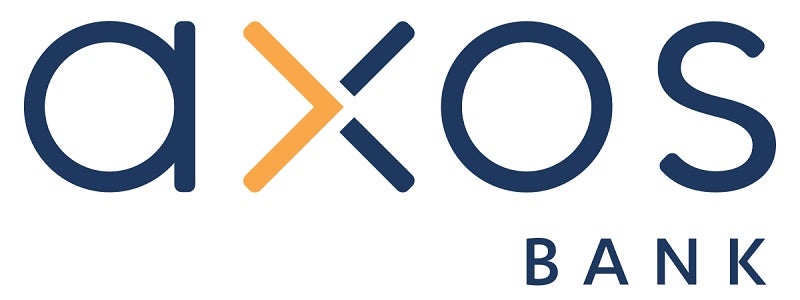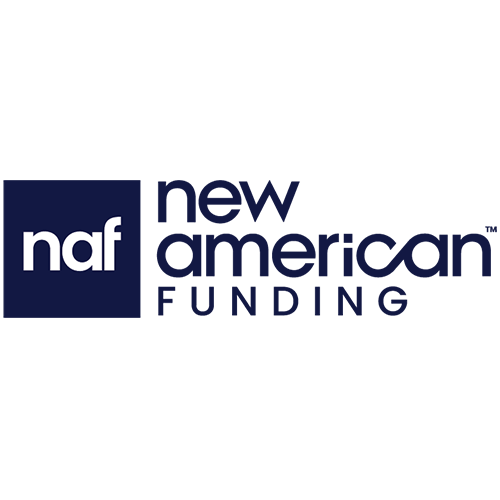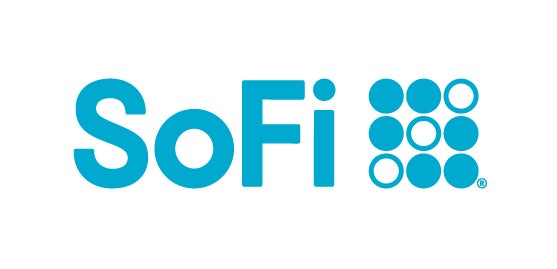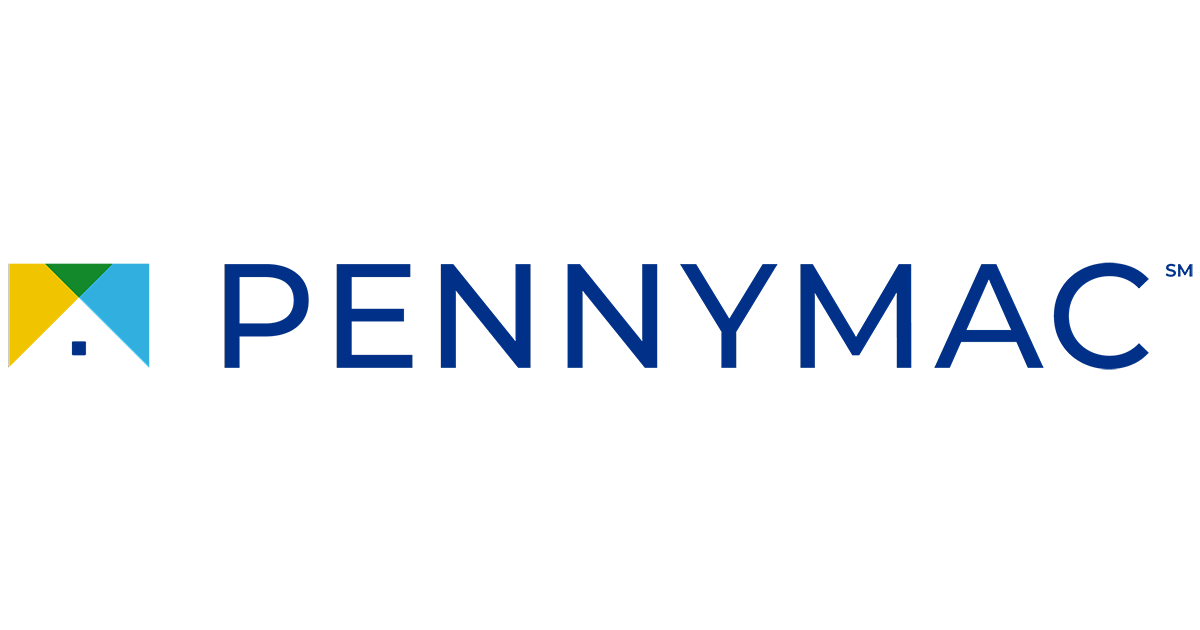Before you start the fun parts of home shopping (like testing out freshly baked cookies at open houses), you'll need to do some of the boring parts. To start, you'll need to choose a mortgage lender. We've spent hundreds of hours researching lenders, and below you'll find a list of our favorites.
Our featured pick:
Better: No unnecessary fees, low mortgage rates -- and Better states applicants can be pre-approved in minutes.
Interested in diving deeper? Grab our full list below, along with expert recommendations on topics like choosing a mortgage lender and getting a great mortgage rate.
Our 12 best mortgage lenders
| Lender | Best For | Next Steps |
|---|---|---|

Better
4.5/5
Our ratings are based on a 5 star scale.
5 stars equals Best.
4 stars equals Excellent.
3 stars equals Good.
2 stars equals Fair.
1 star equals Poor.
We want your money to work harder for you. Which is why our ratings are biased toward offers that deliver versatility while cutting out-of-pocket costs.
4.5/5
Our ratings are based on a 5 star scale.
5 stars equals Best.
4 stars equals Excellent.
3 stars equals Good.
2 stars equals Fair.
1 star equals Poor.
We want your money to work harder for you. Which is why our ratings are biased toward offers that deliver versatility while cutting out-of-pocket costs.
|
Best For
No unnecessary fees and 100% online application |
Check Rates for Better
On Better's Secure Website. |

Veterans United
4.0/5
Our ratings are based on a 5 star scale.
5 stars equals Best.
4 stars equals Excellent.
3 stars equals Good.
2 stars equals Fair.
1 star equals Poor.
We want your money to work harder for you. Which is why our ratings are biased toward offers that deliver versatility while cutting out-of-pocket costs.
4.0/5
Our ratings are based on a 5 star scale.
5 stars equals Best.
4 stars equals Excellent.
3 stars equals Good.
2 stars equals Fair.
1 star equals Poor.
We want your money to work harder for you. Which is why our ratings are biased toward offers that deliver versatility while cutting out-of-pocket costs.
|
Best For
VA loans |
Check Rates for Veterans United
On Veterans United's Secure Website. |

5.0/5
Our ratings are based on a 5 star scale.
5 stars equals Best.
4 stars equals Excellent.
3 stars equals Good.
2 stars equals Fair.
1 star equals Poor.
We want your money to work harder for you. Which is why our ratings are biased toward offers that deliver versatility while cutting out-of-pocket costs.
5.0/5
Our ratings are based on a 5 star scale.
5 stars equals Best.
4 stars equals Excellent.
3 stars equals Good.
2 stars equals Fair.
1 star equals Poor.
We want your money to work harder for you. Which is why our ratings are biased toward offers that deliver versatility while cutting out-of-pocket costs.
|
Best For
Top customer service and streamlined online app |
|

5.0/5
Our ratings are based on a 5 star scale.
5 stars equals Best.
4 stars equals Excellent.
3 stars equals Good.
2 stars equals Fair.
1 star equals Poor.
We want your money to work harder for you. Which is why our ratings are biased toward offers that deliver versatility while cutting out-of-pocket costs.
5.0/5
Our ratings are based on a 5 star scale.
5 stars equals Best.
4 stars equals Excellent.
3 stars equals Good.
2 stars equals Fair.
1 star equals Poor.
We want your money to work harder for you. Which is why our ratings are biased toward offers that deliver versatility while cutting out-of-pocket costs.
|
Best For
Diverse loan products and cash back rewards |
|

4.5/5
Our ratings are based on a 5 star scale.
5 stars equals Best.
4 stars equals Excellent.
3 stars equals Good.
2 stars equals Fair.
1 star equals Poor.
We want your money to work harder for you. Which is why our ratings are biased toward offers that deliver versatility while cutting out-of-pocket costs.
4.5/5
Our ratings are based on a 5 star scale.
5 stars equals Best.
4 stars equals Excellent.
3 stars equals Good.
2 stars equals Fair.
1 star equals Poor.
We want your money to work harder for you. Which is why our ratings are biased toward offers that deliver versatility while cutting out-of-pocket costs.
|
Best For
Diverse loan types and terms |
|

4.0/5
Our ratings are based on a 5 star scale.
5 stars equals Best.
4 stars equals Excellent.
3 stars equals Good.
2 stars equals Fair.
1 star equals Poor.
We want your money to work harder for you. Which is why our ratings are biased toward offers that deliver versatility while cutting out-of-pocket costs.
4.0/5
Our ratings are based on a 5 star scale.
5 stars equals Best.
4 stars equals Excellent.
3 stars equals Good.
2 stars equals Fair.
1 star equals Poor.
We want your money to work harder for you. Which is why our ratings are biased toward offers that deliver versatility while cutting out-of-pocket costs.
|
Best For
Digital experience and down payment assistance |
|

4.0/5
Our ratings are based on a 5 star scale.
5 stars equals Best.
4 stars equals Excellent.
3 stars equals Good.
2 stars equals Fair.
1 star equals Poor.
We want your money to work harder for you. Which is why our ratings are biased toward offers that deliver versatility while cutting out-of-pocket costs.
4.0/5
Our ratings are based on a 5 star scale.
5 stars equals Best.
4 stars equals Excellent.
3 stars equals Good.
2 stars equals Fair.
1 star equals Poor.
We want your money to work harder for you. Which is why our ratings are biased toward offers that deliver versatility while cutting out-of-pocket costs.
|
Best For
Relationship discounts |
|

5.0/5
Our ratings are based on a 5 star scale.
5 stars equals Best.
4 stars equals Excellent.
3 stars equals Good.
2 stars equals Fair.
1 star equals Poor.
We want your money to work harder for you. Which is why our ratings are biased toward offers that deliver versatility while cutting out-of-pocket costs.
5.0/5
Our ratings are based on a 5 star scale.
5 stars equals Best.
4 stars equals Excellent.
3 stars equals Good.
2 stars equals Fair.
1 star equals Poor.
We want your money to work harder for you. Which is why our ratings are biased toward offers that deliver versatility while cutting out-of-pocket costs.
|
Best For
Diverse loan options |
|

4.5/5
Our ratings are based on a 5 star scale.
5 stars equals Best.
4 stars equals Excellent.
3 stars equals Good.
2 stars equals Fair.
1 star equals Poor.
We want your money to work harder for you. Which is why our ratings are biased toward offers that deliver versatility while cutting out-of-pocket costs.
4.5/5
Our ratings are based on a 5 star scale.
5 stars equals Best.
4 stars equals Excellent.
3 stars equals Good.
2 stars equals Fair.
1 star equals Poor.
We want your money to work harder for you. Which is why our ratings are biased toward offers that deliver versatility while cutting out-of-pocket costs.
|
Best For
No mortgage insurance option |
|

4.0/5
Our ratings are based on a 5 star scale.
5 stars equals Best.
4 stars equals Excellent.
3 stars equals Good.
2 stars equals Fair.
1 star equals Poor.
We want your money to work harder for you. Which is why our ratings are biased toward offers that deliver versatility while cutting out-of-pocket costs.
4.0/5
Our ratings are based on a 5 star scale.
5 stars equals Best.
4 stars equals Excellent.
3 stars equals Good.
2 stars equals Fair.
1 star equals Poor.
We want your money to work harder for you. Which is why our ratings are biased toward offers that deliver versatility while cutting out-of-pocket costs.
|
Best For
Diverse loan offerings |
|

4.5/5
Our ratings are based on a 5 star scale.
5 stars equals Best.
4 stars equals Excellent.
3 stars equals Good.
2 stars equals Fair.
1 star equals Poor.
We want your money to work harder for you. Which is why our ratings are biased toward offers that deliver versatility while cutting out-of-pocket costs.
4.5/5
Our ratings are based on a 5 star scale.
5 stars equals Best.
4 stars equals Excellent.
3 stars equals Good.
2 stars equals Fair.
1 star equals Poor.
We want your money to work harder for you. Which is why our ratings are biased toward offers that deliver versatility while cutting out-of-pocket costs.
|
Best For
Easy online application |
|

4.5/5
Our ratings are based on a 5 star scale.
5 stars equals Best.
4 stars equals Excellent.
3 stars equals Good.
2 stars equals Fair.
1 star equals Poor.
We want your money to work harder for you. Which is why our ratings are biased toward offers that deliver versatility while cutting out-of-pocket costs.
4.5/5
Our ratings are based on a 5 star scale.
5 stars equals Best.
4 stars equals Excellent.
3 stars equals Good.
2 stars equals Fair.
1 star equals Poor.
We want your money to work harder for you. Which is why our ratings are biased toward offers that deliver versatility while cutting out-of-pocket costs.
|
Best For
First-time buyers |
Reviews of the best mortgage lenders
We've thoroughly researched dozens of mortgage lenders operating across the U.S. to give you a head start when it's time to choose one -- start with our reviews below.
For no unnecessary fees and 100% online application: Better
Best for: No unnecessary fees and 100% online application
Bottom Line
Better has the right combination of features and perks, including no hidden fees, low mortgage rates, and a fast 100% online application process. Better Mortgage does not charge lender fees such as those for application, processing, and underwriting. You can save up to $2,000 in closing costs if you use a real estate agent referred to you by Better Real Estate and use Better Mortgage Corp. as your lender. The lender also offers $150 off closing costs when applying through Motley Fool Money site.
Min. Credit Score
- 580
Min. Down Payment
- 0-10.01%
Key Features
- One Day Mortgage. Lock a rate, get a Commitment Letter in 24 hrs. Terms apply.
- Close 14 days faster than industry average
- Apply 100% online, entirely on your schedule
- $100 billion in online home loans
- Discount of up to $2,000 in closing costs if you use a real estate agent referred to you by Better Real Estate and use Better Mortgage Corp. as your lender.
Loan Types
- Conventional
- FHA
- VA
- Jumbo
Fixed Rate Terms
- 10y, 15y, 20y, 30y
Adjustable Rate Terms
- 10/6, 7/6, 5/6
Pros
- Low price guarantee
- No unnecessary fees
- Fast pre-approval
- Closing costs discounts
- All digital
Cons
- Still growing menu
- No customizable terms
- No in-person service
Why is Better one of our best mortgage lenders? Better offers attractive refinancing rates and a wide range of loan types. Its online application and automated underwriting help make the loan process quick and easy. What's more, Better doesn't charge any unnecessary fees, leaving more money in your pocket for other expenses.
Fees and Closing Costs:
- Application fees: $0
For VA loans: Veterans United
Best for: VA loans
Bottom Line
The fact that it is the largest VA home lender speaks volumes. Veterans United specializes in VA loans for military members, and offers 24/7 customer service over the phone as well as free credit counseling service. But Veterans United also offers an array of terms and loan products, in addition to competitive rates.
Min. Credit Score
- 620
Min. Down Payment
- 0% - 5.0%
Key Features
- Online approval process
- No required down payment
Loan Types
- VA
- VA Streamline Refinance
- Jumbo
Fixed Rate Terms
- 30y, 20y, 15y
Adjustable Rate Terms
- N/A
Pros
- VA loan experts
- Online mortgage application
- Customer advocates from every branch of the military
Cons
- Doesn't offer home equity loans or HELOCs
- Hard to find info about non-VA loans
Why is Veterans United one of our best mortgage lenders? Veterans United specializes in VA loans, including refinance loans and jumbo loans. Veterans United is an experienced VA lender that can help simplify the loan process for eligible borrowers.
Perks include its online loan process, 24/7 customer service, and highly rated credit counseling service. Credit counseling is free, and has helped thousands of people raise their credit score and become homeowners.
Fees and Closing Costs:
- Application fees: $0
For top customer service and streamlined online app: Rocket Mortgage®
Best for: Top customer service and streamlined online app
Rocket Mortgage®
Bottom Line
Rocket Mortgage led the transition to a full digital experience and online-only applications. Its seamless process is one reason Rocket Mortgage is consistently ranked in the top two on J.D. Power's customer service rankings. Rocket Mortgage has a robust and high-quality app that makes it easy to use.
Min. Credit Score 580 FHA 620 other mortgage products 680 Jumbo
- 580 - 680
Min. Down Payment 0%-3.5% (FHA & VA loans) 3% (conventional loans)
- 0% - 3%
Key Features
- Online-only
- Low down payment options
- Opportunities to get cash toward closing
- High customer satisfaction ratings
Loan Types
- Conventional
- FHA
- VA
- Jumbo
Fixed Rate Terms
- 8 - 30 years (Customizable)
Adjustable Rate Terms
- 10/6, 7/6, 5/6
Pros
- Top-rated customer satisfaction
- High quality app
- Low down payment options
- Services its loans
Cons
- No physical branches
- Limited low down payment eligibility
- No USDA loan
Why is Rocket Mortgage® one of our best mortgage lenders? Rocket Mortgage® consistently achieves high rankings in customer service surveys, and being a happy customer is something we all want. Its online application and highly rated app make it a solid choice for borrowers who prefer the ease of a digital loan process over doing business in person.
Rocket Mortgage® offers low or no down payment mortgages for borrowers who qualify for an FHA or VA loan.
Fees and Closing Costs:
- Application fees: $0
For diverse loan products and cash back rewards: Axos Bank Mortgage
Best for: Diverse loan products and cash back rewards
Axos Bank Mortgage
Bottom Line
No lender fees for qualified existing customers, along with a fully online experience make it a top pick. One of the rare lenders to offer jumbo loans up to $30 million. Axos also offers a mortgage with rewards, giving up to 3% cash back every year.
Min. Credit Score 580 FHA loans 620 other mortgage products
- 620
Min. Down Payment
- 3.5%
Key Features
- Lender fee waiver for qualified existing customers
- Jumbo and super jumbo loans
- HELOC offerings
Loan Types
- Conventional
- FHA
- VA
- Jumbo
- Interest Only
Fixed Rate Terms
- 10-30y
Adjustable Rate Terms
- N/A
Pros
- No lender fee for customers
- Cash back credit on mortgage payments
- Hard-to-find loan options
- Full-service bank
- Rate quote tool
Cons
- Lender fee for non-customers
- No in-person service
- Cumbersome customer service
Why is Axos Bank Mortgage one of our best mortgage lenders? We love Axos Bank's cash back program. Axos Bank checking account customers who maintain a minimum average daily balance can participate in its cash back program, which provides mortgage borrowers an annualized 3% cash back credit on mortgage payments (up to $100/month).
Axos Bank Mortgage offers a comprehensive array of mortgage products, including jumbo mortgages, interest-only mortgages, and nonconforming loans.
Fees and Closing Costs:
- Application fees: Undisclosed
For diverse loan types and terms: New American Funding
Best for: Diverse loan types and terms
New American Funding
Bottom Line
New American Funding is one of the largest privately owned direct mortgage lenders in the country. The lender offers competitive rates. Its selection of loans and customizable loan terms is broader than many other lenders'. The lender also has a highly efficient lending process that allows for quicker closing times. What's more, New American can be a good solution for people building credit and wanting a good mortgage. It focuses on lending to underserved communities.
Min. Credit Score 500 FHA 620 other mortgage products
- 500 - 620
Min. Down Payment 0% VA 3% Conventional 3.5% FHA
- 0% - 3.5%
Key Features
- Fast service
- One of the top lenders to Hispanic and Black borrowers.
- Offer customizable loans, including home addition loans
- High customer satisfaction, A BBB rating
Loan Types
- Conventional
- FHA
- VA
- USDA
- Jumbo
- Interest Only
Fixed Rate Terms
- Customizable (8 - 40 years)
Adjustable Rate Terms
- 10/1 and 10/6, 7/1 and 7/6, 5/1 and 5/6
Pros
- Variety of loan options
- Resources for first-time home buyers
- Spanish-speaking
Cons
- Application is not fully digital
- Must submit your email to get a rate
Why is New American Funding one of our best mortgage lenders? We love New American Funding's commitment to help borrowers in underserved communities become homeowners. New American Funding provides educational resources for first-time home buyers, and offers loan products for borrowers with less-than-perfect credit.
New American Funding is willing to work with self-employed borrowers and can help them find non-QM mortgage options.
Fees and Closing Costs:
- Application fees: Undisclosed
For digital experience and down payment assistance: Guaranteed Rate Mortgage
Best for: Digital experience and down payment assistance
Guaranteed Rate Mortgage
Bottom Line
Guaranteed Rate does a great job with ease of usability, offering comprehensive loan information during your research phase, plus the option to securely upload and digitally sign loan documents when you're ready to apply. The lender publishes its rates for different loans online, making it easy to compare options.
Min. Credit Score
- 620
Min. Down Payment
- 0%-3.5%
Key Features
- Customer-friendly website
- Technology to ease the process
- Neighborhood data
Loan Types
- Conventional
- FHA
- VA
- Jumbo
- Interest Only
Fixed Rate Terms
- 30y, 15y
Adjustable Rate Terms
- 5/6, 7/6, 10/6
Pros
- Excellent online rate tool
- Digital mortgage application
- Down payment assistance programs
- Special low rate program for highly qualified borrowers
Cons
- Credit check fee
Why is Guaranteed Rate Mortgage one of our best mortgage lenders? Guaranteed Rate Mortgage makes it easy for borrowers to navigate the mortgage process online. Its website has an intuitive interface -- you can easily find information about loan types, terms, and rates with just a few clicks.
Guaranteed Rate Mortgage's rates page includes a feature that enables you to compare the cost of a loan with zero, one, or two discount points.
Fees and Closing Costs:
- Application fees: $1,640, waived for VA loans
For relationship discounts: SoFi® Mortgage
Best for: Relationship discounts
SoFi® Mortgage
Bottom Line
SoFi® has a complete digital mortgage and refinance application process. It offers membership discounts and a modern experience. It's a potential fit for self-employed borrowers, based on SoFi®'s nontraditional underwriting process that focuses on a combination of credit history, income, and assets.
Min. Credit Score
600
Min. Down Payment 0% VA loan 3% first-time borrowers 3.5% FHA loan 5% everyone else
- 0% - 5%
Key Features
- Named the Best Mortgage Lender for Discounts in 2024 by CNBC Select
- Extended rate lock option allows to you lock in today's rate for more than 45 days
- On-time close guarantee offer is backed by $10,000
- A dedicated mortgage loan officer to help you through the process
Loan Types
- Conventional
- FHA
- VA
- Jumbo
Fixed Rate Terms
- 10y, 15y, 20y, 30y
Adjustable Rate Terms
- 10/6, 7/6, 5/6
Pros
- Member benefits
- Online application
- Custom rate with soft credit inquiry
- Services its loans
Cons
- Limited loan options
- No USDA loan
- No home equity loans
Why is SoFi® Mortgage one of our best mortgage lenders? SoFi® Mortgage offers membership perks you won't find with many other mortgage lenders, including a member discount for borrowers who have a loan or investment account with SoFi, and access to financial and estate planning services. Its fully online application process is a plus for borrowers who don't need in-person assistance.
Fees and Closing Costs:
- Application fees: Undisclosed
For diverse loan options: Bank of America Mortgage
Best for: Diverse loan options
Bank of America Mortgage
Bottom Line
Bank of America is one of the largest banks in the U.S., offering a wide variety of financial products in addition to its mortgages. Few lenders can match the lineup of loan products and terms. Bank of America offers a Preferred Rewards program for borrowers who have bank accounts at the bank and investment accounts at Merrill. Borrowers can qualify for an origination fee or interest rate reduction based on their eligible tier at the time of application.
Min. Credit Score
- Undisclosed
Min. Down Payment 0% VA loans 3.5% FHA 3% Conventional loans, Affordable Loan Solution® mortgage, Freddie Mac Home Possible® mortgage 5% Other loans
- 0%-3%
Key Features
- Wide range of financial products
- Preferred Rewards program
- Ability to apply entirely online
- Loans up to $2 million
Loan Types
- Conventional
- FHA
- VA
- Jumbo
Fixed Rate Terms
- 30y, 20y, 15y
Adjustable Rate Terms
- 10/6, 7/6, 5/6
Pros
- Low down payment mortgages
- Down payment assistance
- Competitive HELOC
- Transparent mortgage rates
Cons
- No USDA loan
- Lacking in non-qualified mortgage options
Why is Bank of America Mortgage one of our best mortgage lenders? Bank of America Mortgage provides loan options for borrowers of all income levels. Eligible borrowers with low to moderate income can benefit from Bank of America Mortgage's Affordable Loan Solution® program, which has a minimum 3% down requirement.
Bank of America customers with considerable assets may qualify for closing cost and HELOC interest rate discounts.
Fees and Closing Costs:
- Application fees: $562-$1,062
For no mortgage insurance option: Navy Federal Credit Union Mortgage
Pros
- Very low mortgage rates
- Transparent rates and fees
- Free rate lock
- Rate match guarantee
- 100% financing with no PMI
Cons
- Members only
- Noncommittal pre-approval
- Limited selection of loans
Why is Navy Federal Credit Union Mortgage one of our best mortgage lenders? NFCU offers surprisingly low mortgage interest rates and displays its mortgage rates on its website. Its Homebuyers Choice Loan has no down payment or PMI requirements, and is available to first-time home buyers. Other benefits include its free rate lock, rate match guarantee, and loans tailored for military members.
Fees and Closing Costs:
- Application fees: $0
For diverse loan offerings: PNC Mortgage
Best for: Diverse loan offerings
PNC Mortgage
Bottom Line
PNC is a large bank with a wide range of financial products. It offers an online tool called Home Insight Planner to help borrowers find a home that fits their budget and needs. It then matches a borrower to its diverse loan products and terms. PNC can accommodate many borrowers, including those looking for mortgage options with no PMI.
Min. Credit Score
- 600
Min. Down Payment 0% VA and USDA 3% conventional 3.5% FHA
- 0% - 3.5%
Key Features
- 3% down no PMI offering
- HELOCs
- Cash grants
- Several low down payment mortgage options
Loan Types
- Conventional
- FHA
- VA
- USDA
- Jumbo
Fixed Rate Terms
- 10-30 years
Adjustable Rate Terms
- 10/6, 7/6
Pros
- Wide selection
- Cash grants
- Digital pre-approval
- Flexible HELOC options
Cons
- Relationship discount
- White glove service
- Fee transparency
Why is PNC Mortgage one of our best mortgage lenders? PNC Mortgage offers many options for borrowers who need down payment assistance or borrowers with low to moderate income. Its low down payment mortgage with no PMI requirements is particularly attractive.
PNC Mortgage also provides several educational resources, including interactive calculators, PNC's Home Insight Planner (helps you find the right type of loan), and PNC's application Tracker (takes you through the loan process from start to finish).
Fees and Closing Costs:
- Application fees: Undisclosed
For easy online application: Pennymac
Best for: Easy online application
Pennymac
Bottom Line
Pennymac specializes in government mortgages like VA and FHA loans. Pennymac offers rate transparency, help via phone or online, flexible loan terms, and a rate guaranteed to beat competitors. Pennymac is a great place for people to start looking for a mortgage.
Min. Credit Score 580 FHA and VA loans 620 Conventional loan 700 Jumbo loan
- 580-620
Min. Down Payment
- 0% - 3%
Key Features
- 100% online application
- Instant rate estimates
- Flexible terms
- Top VA lender
- Money-saving perks
Loan Types
- Conventional
- FHA
- VA
- USDA
- Jumbo
Fixed Rate Terms
- Customizable between 15y and 30y
Adjustable Rate Terms
- 10/6, 7/6, 5/6
Pros
- Rate transparency
- Up to 90-day rate lock
- Flexible terms
Cons
- Limited physical presence
Why is Pennymac one of our best mortgage lenders? We like how easy it is to find Pennymac's current mortgage rates (and that it shows rates and mortgage discount points for several loan terms). Pennymac also offers several calculators to help you estimate how much house you can afford, how much paying points will reduce your total costs, and how much you should save up for a down payment.
Additionally, Pennymac's website contains a wealth of educational resources, and its customer service department is available every day of the week.
Fees and Closing Costs:
- Application fees: $0
For first-time buyers: Flagstar Bank Mortgage
Best for: First-time buyers
Flagstar Bank Mortgage
Bottom Line
Flagstar Bank offers a wide variety of mortgage options to match your individual needs. It offers personally tailored mortgage options, specialty loans, renovation and new home construction loans, professional loans, and many other personalized financing solutions.
Min. Credit Score
- 600-740
Min. Down Payment 0%-3.5% (FHA and VA loans) 3% (conventional)
- 0% - 3.5%
Key Features
- Wide range of specialty, professional, and community loan types
- Available in all 50 states
- Online application and rate comparison
Loan Types
- Conventional
- FHA
- VA
- USDA
- Jumbo
Fixed Rate Terms
- 8y - 40y
Adjustable Rate Terms
- 5/6, 7/6, 10/6
Pros
- Hard-to-find specialty loans
- Great online rate tool
- Home buyer grants
- Low minimum HELOC draw
Cons
- Average marks for customer satisfaction
- Annual fee for HELOC
Why is Flagstar Bank Mortgage one of our best mortgage lenders? Flagstar Bank Mortgage offers several specialty loans, including multiple-property loans, construction loans, and renovation loans. It also provides down payment assistance programs and loans with lower PMI rates.
First-time home buyers can find comprehensive information about the mortgage process on its website and use its mortgage calculators to help determine how much they can borrow, and estimate their closing costs and monthly payment amounts.
Fees and Closing Costs:
- Application fees: Undisclosed
How to pick the right mortgage lender for you
Follow these six steps to find the best mortgage lender for you.
Step 1. Check your credit score
A higher credit score could help you save money over the long term with a lower interest rate on your mortgage. Check your credit score before you apply. You may be able to check it for free by logging onto your bank or credit card dashboard. Otherwise, find a free credit score website.
If your score isn't where you want it to be (and especially if it's close to the cutoff for a lender's lower rate), take steps to improve it. The two most important things you can do for your score are pay your bills on time and keep credit card debt low.
Step 2. Determine your loan amount
Before selecting a mortgage lender, have a sense for how much you can borrow. A good affordability benchmark for your total housing payment is 28% of your monthly gross (before taxes) income. Your housing payment includes the principal and interest, your homeowners insurance, property taxes, and your homeowners association fees, if any.
If the dollar amount seems too high for your budget, you can aim for a smaller loan and smaller payment. Even if you're approved for a bigger loan, you don't have to commit to a payment that would make your financial life hard.
Now that you have the monthly payment amount in mind, use a mortgage calculator for your state to figure out how much you could borrow. The amount you can borrow will depend on mortgage interest rates and how much you pay for property taxes, insurance, and HOA fees, so you'll want to play around with the numbers a little.
Step 3. Ask about interest rates
Your mortgage rate will depend on your credit score, your down payment, the loan type, and the lender. Even a small difference in rates can have a big impact on how much you end up paying every month and overall.
When lenders quote rates, be sure to ask how many mortgage discount points you would have to pay to get the quoted rate.
Step 4. Choose a lender offering the terms you want
Virtually all mortgage lenders offer 15-year mortgages and 30-year mortgages, but not everybody wants those terms. You could get a lower interest rate by choosing a different term, or reach some other goal. For instance, maybe you plan to retire in 23 years and you want your loan to be paid off by then. Explore the different term options with all of the lenders you talk to.
Step 5. Look for lenders with lower closing costs
Closing costs are charges for things like the property appraisal, prorated property taxes, a credit report fee, a title search fee, and so on. These could total 2% to 6% of your total loan amount.
Step 6. Get prequalified or pre-approved
Getting prequalified can give you a general estimate of the mortgage rate you might qualify for, without hurting your credit score. A hard credit check for pre-approval could knock a few points off your credit score, but should give you a more accurate rate estimate.
What is a mortgage lender?
A mortgage lender is a bank, credit union, online lender, or other financial institution that provides a loan to purchase real estate.
Are there different kinds of mortgages?
How do I compare mortgage lenders?
Once you've found a few mortgage lenders you love, it's time to compare them. There are a few factors that are important to compare to make sure you find a home loan that fits your situation.
- How quickly do you need to be pre-approved? Some mortgage lenders specialize in quick mortgage pre-approval, while others may take a little longer.
- What are the lender's rates? Different lenders offer different mortgage rates, so be sure to compare them before settling on one.
- Does the lender charge any fees? Most lenders charge some fees, like origination fees and closing costs; some charge low or no fees. Make sure you read the fine print to understand what you'll pay.
When you're ready to apply for a loan, it's a good idea to apply with multiple lenders on the same day. After you apply, they are each supposed to give you a document called a loan estimate. The loan estimate is a standard form, so they'll all look the same even if they are from different lenders.
This tells you all the information about the loan you're being offered, including closing costs. If you apply with multiple lenders, you can compare the loan estimates and see how the closing costs stack up against each other.
How do I qualify for a home loan?
Many factors go into qualifying for a mortgage. In general, lenders like to see a good credit score, a down payment, and consistent income. They also prefer that all your monthly debt payments -- housing included -- add up to less than half of your monthly income.
If you don't check all those boxes, don't worry. Look at different mortgage types and talk to lenders -- many are flexible to different situations.
Tips from mortgage industry experts

Brian Adams
Associate Dean of Graduate Programs, Pamplin School of Business at the University of Portland
How can home buyers feel more confident when choosing a mortgage lender?
As with any large-ticket item purchase, the more information you have to make a decision the more confident you are with your choice. Due to the size of the mortgage industry in the U.S. there are many lending platforms and mortgage information sites on the internet. I searched for "mortgage rates" and ended up with 674 million results. For comparison purposes, searching for "NFL" brought up 496 million results. Granted, this could result in decision paralysis with this much information. I would recommend starting with your current bank/credit union, and include other lenders from [review] sites. It is likely the lender you choose will end up selling your loan through the mortgage-backed securitization process. So focus on lower rates and fees. Customer service is less under your control.
How do changing interest rates affect mortgages in different communities?
The loan decision is standardized in the mortgage market due to the participation of Fannie Mae and Freddie Mac (two government-sponsored enterprises that buy and sell about half of U.S. mortgages). FICO® Score, current income, and availability of money for a down payment are the most important factors. The efficiency of the mortgage market works against underserved communities where the ability to build a prime FICO® Score (above 720) can be more difficult. If you do not have the opportunity to build a credit history then it is more difficult to obtain an affordable mortgage. Therefore, the issue for underserved communities is the opportunity to create a solid credit history.
What's one tip you would give to members of underserved communities looking to get the best mortgage rate possible?
Building a credit history is the key. This starts with on-time payment of bills (utilities, cable, cellphone) and then moves on to other opportunities like credit cards. Utilizing a credit card as a debit card, for only small-ticket purchases that can be paid off in full every month, also helps build credit. There are also programs through the U.S. Department of Housing and Urban Development's FHA program targeted directly at helping underserved communities become homeowners.

Clifford Rossi
Executive-in-Residence and Professor of the Practice at the Robert H. Smith School of Business at the University of Maryland
How can homebuyers feel more confident when choosing a mortgage lender?
First, ever since the financial crisis in 2008, a number of measures were taken to strengthen and improve oversight of mortgage lending practices in the industry. The Consumer Financial Protection Bureau (CFPB) was established in part to address many of the deficient and sometimes predatory lending practices that occurred at that time. As a result, mortgage lenders, even those nonbank mortgage entities that are not regulated as closely as commercial banks and other depositories at the federal level must comply with all applicable federal state and local laws regarding mortgage lending. Generally, in shopping around for a lender you can trust, I would look at their track record in terms of complaints which are available at the CFPB Consumer Complaint Database. References from friends and family are another good way of benchmarking lenders in terms of how they handled the loan process. Regulated depositories, according to my research, tend to have far less operational problems in loan origination than nonbank financial institutions in terms of how they follow the process required to underwrite borrowers for Fannie Mae or Freddie Mac-eligible loans. So that might be another factor to consider as well.
How do changing interest rates affect mortgages in different communities?
We are approaching the end of a very long secular decline in interest rates that has spanned decades. At some point we expect the Fed to begin the process of taking measures that will start to raise interest rates including US Treasuries. Since the 10-year US Treasury yield is the benchmark for setting 30-year fixed-rate mortgage rates, we should expect that higher rates are going to dampen demand for mortgages at some point. Lower income borrowers, including minority borrowers, are going to feel the impact first of higher interest rates which will further put the dream of homeownership out of reach during a period of time when there are acute housing affordability issues already.
What's one tip you would give to members of underserved communities looking to get the best mortgage rate possible?
I'll offer a few tips. The first is one that every borrower needs to do first. Check your credit score and credit history through one of the readily available credit reporting companies and services and find out if there are any issues that you can address prior to applying for a mortgage. The second tip is look at your current finances. Add up all your outstanding monthly debt including credit card, student debt and the like and divide that by your monthly income. The lower that debt-to-income ratio is, the better chance you have at getting a loan. Also, determine how much money you have to put down on a home. Make sure you leave yourself with enough cash or short-term assets that you can tap for an unexpected event and for home maintenance. If you are a first-time homebuyer, do some homework or take a class on what to expect in owning a home. These activities can really help put you in good shape to find the right home and mortgage for your family.

Chester S. Spatt
Professor of finance at Carnegie Mellon University's Tepper School of Business
How can home buyers feel more confident when choosing a mortgage lender?
It is important for home buyers to undertake sufficient search to obtain quotes from various prospective lenders before selecting one -- especially given the range of pricing that can arise. They also should try potentially to clarify the servicing process with the lender (or even check with other borrowers of the lender about their experience, if feasible).
How do changing interest rates affect mortgages in different communities?
The decline in interest rates has contributed to high house prices and loan values, as buyers would bid more aggressively.
What's one tip you would give to members of underserved communities looking to get the best mortgage rate possible?
I would reinforce my advice (above) -- it is very important for home buyers to undertake ample search so as to ensure that they are receiving favorable pricing on their loans as underserved communities are especially vulnerable to attempts to exercise market power. This may be at the heart of the meaning of a community being "underserved."

Michael Manahan
Lecturer at California State University Dominguez Hills, Author and Consultant
How can home buyers feel more confident when choosing a mortgage lender?
The first thing to understand about home lenders is that many of the companies that advertise mortgage loans are not really lenders. They are brokers. The money is not coming from them -- it is coming from a lender (to whom the broker takes the loan). As an example, I financed my last mortgage through Right Choice Mortgage. However, the loan was made to me from Glendale Credit Union.
The second thing to understand is that even if you go directly to a lender, the lender may still act as a broker. A lender, such as Bank of America, could give you a mortgage. But they could just as easily "sell off" the mortgage to a group of investors in the mortgage aftermarket. Why? Because this frees up the bank's capital to make more loans.
Who you choose to help you obtain a mortgage really depends on two things: 1) Your personal financial situation and, 2) What sort of relationship you want with a mortgage lender. If you have a complex personal financial situation, such as having multiple sources of income, being self-employed, having investment properties, and owning LLCs, or previous bankruptcies, you may find that some mortgage companies don't want to bother working with you (because it will take more time and effort to get your mortgaged approved). Also, many of the large automated or semi-automated mortgage companies where you apply online don't have the right "boxes" on their application for you to explain everything. You can end up in a quagmire of endless frustration working with these companies.
Even if you have a straightforward financial situation, you still must decide what sort of relationship you want with the mortgage company. Are you okay doing everything online or do you need to fill out forms by hand? Do you want to speak to the same person every time or are you okay with talking to whichever one of the hundreds of people in the call center answers the phone? Do you need someone who can walk you through the process and explain things to you, or are you an old "mortgage pro" who understands how the system works? Making the right decision will make your mortgage application process a whole lot easier.
Whoever you choose to work with to get a mortgage, before getting in too deep, find out how they do business and if their style fits in with your needs. Finally, if you do use one of those online brokers, if you can't find the phone number on the home page, don't use them.
How do changing interest rates affect mortgages in different communities?
Interest rate changes affect home buying. When interest rates drop, homes become more affordable because loan payments go down. As an example, if you purchased a home for $600,000 (the average price of a home in California) and put 20% down, you would have a $480,000 mortgage. At 3% interest your payment before taxes and insurance would be $2,024. At a 5% interest rate, your payment would be $2,577, or 27% higher. As lenders typically look for your cost of housing to be no more than 30% of your income, lower interest rates should allow more people to get mortgages, and higher interest rates will restrict mortgages.
However, changes in mortgage interest rates do not affect all communities the same. Obviously very rich people, who may still mortgage their homes for tax or financial planning purposes, have few restraints on their ability to get a mortgage. At the lower end of the scale, the least expensive house may continue to sell well when interest rates rise because there are many programs to help underserved and first-time buyers. FHA loans are specifically intended for lower-income, lower-credit, and/or first-time home buyers. This program, which is backed by the Federal Housing Administration, makes it easier to become a homeowner by relaxing the standards borrowers must meet to get a mortgage.
The communities that get hit hardest (or benefit the most) when interest rates change are those communities where the home prices are above average, but not high enough to be of interest to rich people. As an example, in California, that might include communities where the home prices are in the $1 million to $1.5 million range. I recall the recession of 2008, when the value of real estate dropped substantially, there was still demand for the least expensive houses and still demand for mega-mansions of the rich. But those million-dollar homes couldn't find many buyers.
What's one tip you would give to members of underserved communities looking to get the best mortgage rate possible?
I offer three tips to members of underserved communities to get the best rates possible. First, do whatever you can to improve your credit score. Even in underserved communities credit scores are one of the primary indicators of credit worthiness used by our financial system.
Second, work with a bank or lender that is familiar with all the programs that are available to underserved communities. Some mortgage companies may not want to use these programs because they may be extra work. Find a mortgage company who can talk frankly to you about those programs that are available and that you can use to your benefit.
Finally, make sure the mortgage company knows that you are a member of an underserved community. Today when we do a lot of business online or on the phone, it may be difficult for the lender to know that you are member of an underserved community which under the broad-based definition recently provided by the White House is said to include "people of color and others who have been historically underserved, marginalized, and adversely affected by persistent poverty and inequality." That definition covers a lot of people.

Scott Deacle
Associate Professor of Business and Economics and Department Chair at Ursinus College
How can home buyers feel more confident when choosing a mortgage lender?
The most effective way is to get quotes from multiple lenders. Time consuming as it is, the extra work pays off with leverage in your discussions with those lenders. If you know what other lenders are offering, each lender is likely to try to match or beat the rates you are getting with other lenders.
Another way is to obtain a mortgage from the bank or credit union where you have your checking or savings accounts. Such lenders sometimes offer discounts to their account holders.
You can also compare the rates lenders are offering to national benchmark rates, such as those published by Freddie Mac.
How do changing interest rates affect mortgages in different communities?
I think changing interest rates have similar impacts across communities. When interest rates fall, they generally fall for all borrowers.
What's one tip you would give to members of underserved communities looking to get the best mortgage rate possible?
Many issues surrounding loans to members of underserved communities stem from issues with credit scores and credit reports. My one tip is to obtain the free credit report to which you are entitled by law and review it for inaccuracies before applying for a mortgage. If there are errors in your credit report, correcting them will improve your credit score, which in turn could get you a lower interest rate.
FAQs
-
Most mortgage lenders set the minimum credit score for a mortgage at around 620. But some loans, including a VA loan, have no minimum credit score requirements at all. Other government-backed loans, such as FHA loans, are available to applicants with lower scores.
Keep in mind that if your application is strong in other areas, it's easier for the lender to be flexible with your credit score. For instance, it'll help if you have a bigger down payment.
-
To find the best mortgage rates from the best mortgage lenders, get quotes from as many lenders as possible. Look for lenders that allow you to check rates with only a soft credit check. Soft credit checks don't affect your credit score. Compare rates and fees to assess total costs of borrowing.
If you want the best loan at the most competitive rate, the following can help:
- Increase your credit score
- Pay down your other debt
- Choose a shorter loan term
- Make a larger down payment
-
Mortgages are secured loans. A secured loan is guaranteed by collateral (something the lender can take if you fail to repay the loan). On a mortgage, the real estate is the collateral. Collateral lowers the risk for the lender, and in turn the lender can charge less for the loan.
We're firm believers in the Golden Rule, which is why editorial opinions are ours alone and have not been previously reviewed, approved, or endorsed by included advertisers. Motley Fool Money does not cover all offers on the market. Motley Fool Money is 100% owned and operated by The Motley Fool. Our knowledgeable team of personal finance editors and analysts are employed by The Motley Fool and held to the same set of publishing standards and editorial integrity while maintaining professional separation from the analysts and editors on other Motley Fool brands. Terms may apply to offers listed on this page.











